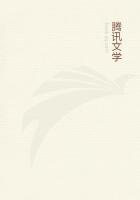We already saw that the trembling and the palsy make it incapable of flight or defence; we have also convinced ourselves that in the most decisive moments of danger we are less able to see than when we are tranquil.In face of such facts we must admit that the phenomena of fear cannot all be accounted for by 'selection.' Their extreme degrees are morbid phenomena which show an imperfection in the organism.We might almost say that Nature had not been able to frame a substance which should be excitable enough to compose the brain and spinal marrow, and yet which should not be so excited by exceptional stimulation as to overstep in its reactions those physiological bounds which are useful to the conservation of the creature."
Professor Bain, if I mistake not, had long previously commented upon fear in a similar way.
Mr.Darwin accounts for many emotional expressions by what he calls the principle of antithesis.In virtue of this principle, if a certain stimulus prompted a certain set of movements, then a contrary-feeling stimulus would prompt exactly the opposite movements, although these might otherwise have neither utility nor significance.It is in this wise that Darwin explains the expression of impotence, raised eyebrows, and shrugged shoulders, dropped arms and open palms, as being the antithesis of the frowning brow, the thrown-back shoulders, and clenched fists of rage, which is the emotion of power.No doubt a certain number of movements can be formulated under this law; but whether it expresses a causal principle is more than doubtful.It has been by most critics considered the least successful of Darwin's speculations on this subject.
To sum up, we see the reason for a few emotional reactions; for others a possible species of reason may be guessed; but others remain for which no plausible reason can even be conceived.These may be reactions which are purely mechanical results of the way in which our nervous centres are framed, reactions which, although permanent in us now, may be called accidental as far as their origin goes.In fact, in an organism as complex as the nervous system there must be many such reactions, incidental to others evolved for utility's sake, but which would never themselves have been evolved independently, for any utility they might possess.Sea-sickness, the love of music, of the various intoxicants, nay, the entire æsthetic life of man, we have already traced to this accidental origin.It would be foolish to suppose that none of the reactions called emotional could have arisen in this quasi -accidental way.
This is all I have to say about the emotions.If one should seek to name each particular one of them of which the human heart is the seat, it is plain that the limit to their number would lie in the introspective vocabulary of the seeker, each race of men having found names for some shade of feeling which other races have left undiscriminated.If then we should seek to break the emotions, thus enumerated, into groups, according to their affinities, it is again plain that all sorts of groupings would be possible, according as we chose this character or that as a basis, and that all groupings would be equally real and true.The only question would be, does this grouping or that suit our purpose best? The reader may then class the emotions as he will, as sad or joyous, sthenic or asthenic, natural or acquired, inspired by animate or inanimate things, formal or material, sensuous or ideal, direct or reflective, egoistic or non-egoistic, retrospective, prospective or immediate, organismally or environmentally initiated, or what more besides.All these are divisions which have been actually proposed.
Each of them has its merits, and each one brings together some emotions which the others keep apart.For a fuller account, and for other classificatory schemes, I refer to the Appendix to Bain's Emotions and the Will, and to Mercier's, Stanley's, and Read's articles on the Emotions, in Mind, vols.
IX, X, and XI.In vol.IX.p.421 there is also an article by the lamented Edmund Gurney in criticism of the view which in this chapter I continue to defend.
Footnotes Parts of this chapter have already appeared in an article published in 1884 in Mind.
Ueber Gemüthsbewegungen, uebersetzt von H.
Kurella (Leipzig, 1887).















